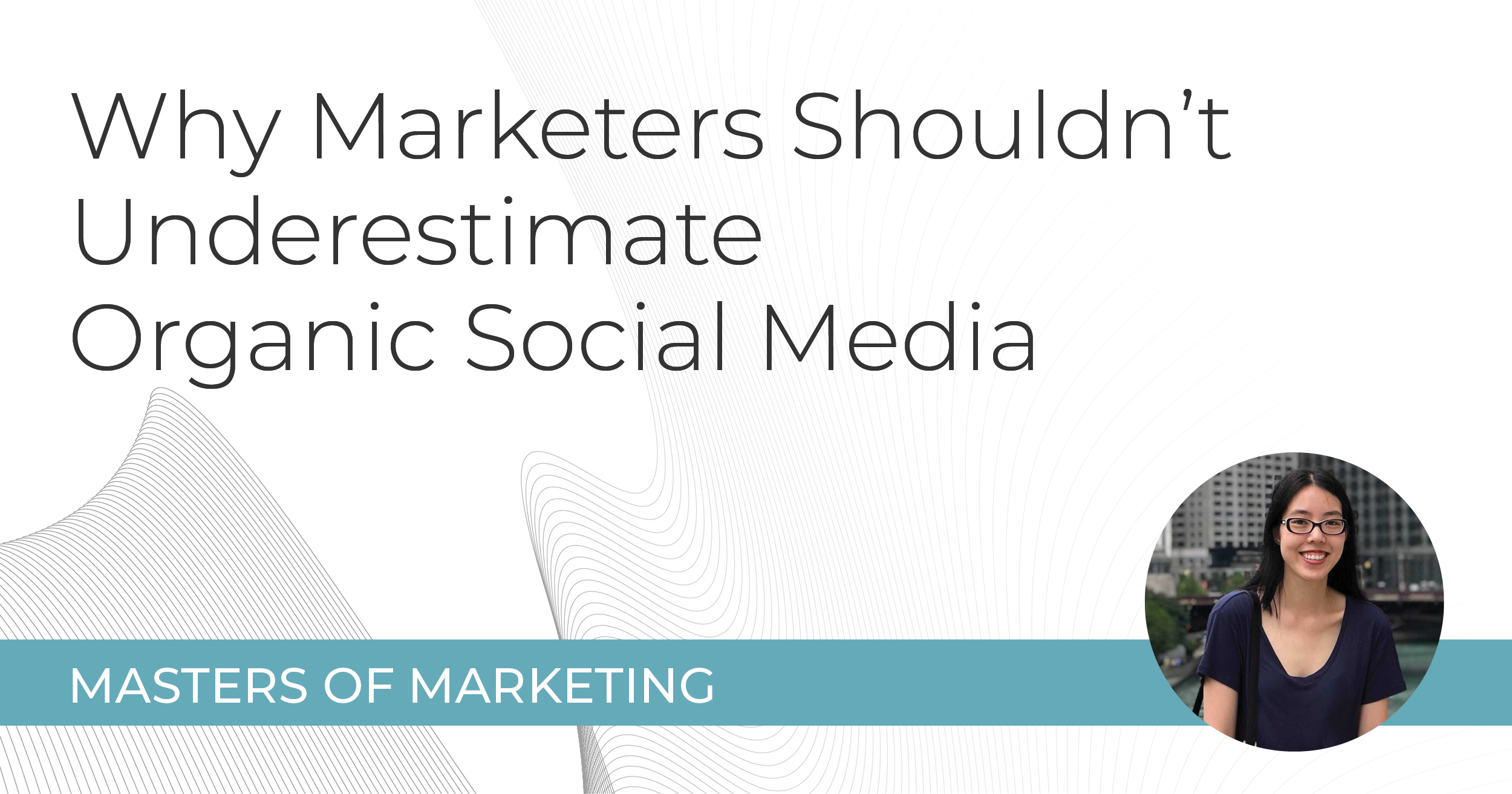Though it’s important for businesses to invest in paid social media content in order to improve brand growth and audience reach, it is equally as important to implement an organic social media program as well. Why is this the case, though, and exactly how effective can organic social media be for a brand?
Organic social media is the content on a brand’s social media accounts or websites that can be posted for free. For example, on Spark Growth’s Instagram account, we use 3-grids that highlight marketers or posts with digital marketing stats. On our website, we have a blog that’s constantly being updated with educational guides and news.
Alternatively, paid social media are advertisements that brands pay for, like an in-feed native ad on TikTok. These paid ads typically have a variety of parameters, like showing the ad to users in specific countries or individuals with certain interests.
A commonly misunderstood line of thought is that if paid social media strategy is generating the sales, that having an organic social media strategy is not necessary. Although this may be true in some cases, this article will discuss why organic still has an important role in brand awareness and building a strong online presence.
Today, we’ve asked one of our core team members, Jackie Le, Copywriter and Social Media Coordinator at Spark Growth, to give us her insights on the topic!
Hi Jackie! Thanks for joining us today. Can you let us know a bit about your background at Spark Growth?
I first started as a copywriting intern at the end of September 2019 so my work anniversary just passed! What I loved most about my internship at Spark Growth was that it was a lot of hands-on work that put me in the perfect position to learn a lot more about social media and digital marketing. Working with the team has been great and I’m so thankful for everyone’s guidance!
During my internship, I worked on a lot of internal projects, like writing articles and creating social media posts. When I was hired on a full-time basis, more of my focus went to client work, specifically organic social media management and strategy.
So in a digital landscape where paid social media is the one that is driving sales, what is the value in organic social media?
When we think about customer touchpoints, organic social media really has become an important way for brands to communicate with their audience. Organic content perfectly complements paid social media activities because it’s another way to tell your brand’s story.
Also, the COVID-19 pandemic has definitely impacted organic social media strategies. There’s a heavier emphasis on being authentic and transparent. As businesses start re-opening, think of how many have used their Instagram or Facebook to share information on how they’re keeping customers safe. I also think brands are much more cognizant of their community management now, either by assigning someone in-house or an external agency to manage their channels. Customers expect timely responses on social media, and many are now flocking to brands’ social media pages to ask questions about their own safety or how the business may have changed. Comments left unanswered, particularly important ones about safety measures, can negatively impact a company’s brand image.
Can you explain why we always “need to” develop strategy for our clients’ organic social media at Spark Growth?
For many businesses, the idea of being online and posting content is exciting, but the execution is just one small part of social media management. The strategy should always come first. Choosing to post on either LinkedIn or Instagram is one aspect of it all, but is your post optimized? Are you using the right hashtags? Are you posting at the optimal time of day for your audience? Are you able to consistently develop quality content?
Spark Growth’s approach to digital marketing is very much rooted in having a data-driven mindset in order to optimize performance KPIs (key performance indicators) while balancing numbers with engaging and valuable organic content.
Implementing a thoughtful strategy is what gets us from point A to point B when it comes to helping our clients achieve their business goals, whether it’s improving their sales, or getting more sign-ups for their online classes. Posting organic content with a clearly defined goal can help drive the audience further down a brand’s marketing funnel.
Lastly, what are some lessons marketers can learn from these challenging times, and how can they be applied strategically?
In terms of lessons that can be learned, the key thing for marketers to remember is to always be aware of what posts are going out on social media. Things change fast and organic content may need to be swapped out for something more timely. A recent example is #BlackoutTuesday where we also paused some organic content on our client accounts in solidarity with the Black Lives Matter movement.
Another thing to keep in mind is the consumer. During the pandemic, social channels became one of the primary ways brands communicated with their audience. In a post-COVID world, marketers should still keep this in mind for their organic content and think of the type of valuable messaging that can be shared through their organic social media channels.
Great insights! Thanks for joining us today, Jackie, and teaching us more about the importance of an organic social media strategy for brands.
And to gain even more insight about the benefits of social media marketing, why not take a look at what sets Spark Growth apart from other digital agencies? Learn all about Social Intelligence Optimization (SIO), an analytic tool invented by us that helps our clients strategically optimize their content performance!
href="#" data-color-override="false" data-hover-color-override="false" data-hover-text-color-override="#fff">Click here to learn about SIO!

